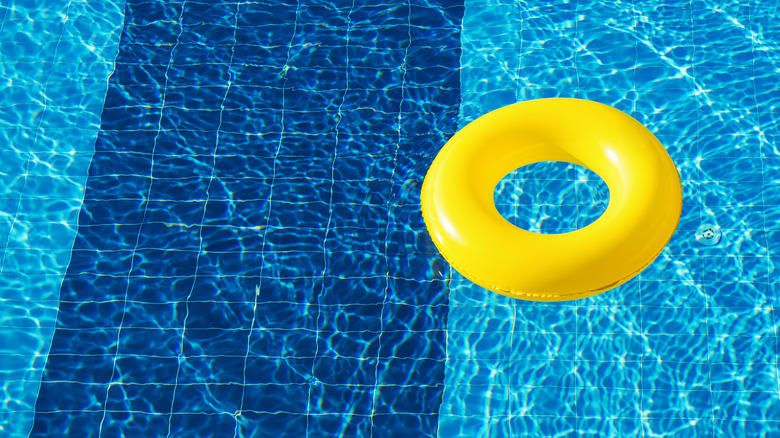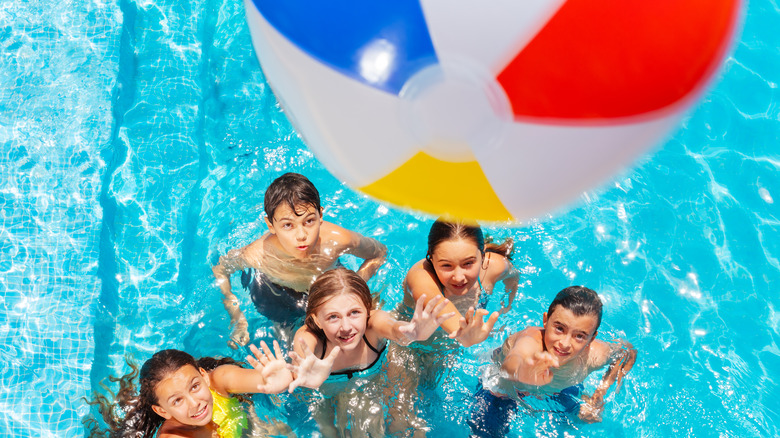Is It Dangerous To Drink Pool Water?
Going for a swim on a hot summer day is a great way to have fun and beat the heat. But whatever you do — don't swallow the pool water. According to the Centers for Disease Control and Prevention (CDC), public pool water can be a source of harmful germs and bacteria.
While public pools are treated with chlorine and other chemicals to help kill off dangerous germs in the water, some bacteria and parasites are more difficult to get rid of and can stay alive for days. If swallowed, these germs can make you sick. "Some of the most common strains of bacteria and parasites that are notoriously tough to kill include E.coli, giardia, and shigella," Dr. Daniel Cichi from Doctor4U told Yahoo! News. "But, the worst culprit for causing recreational water illnesses is cryptosporidium — often shortened to Crypto."
Crypto is a parasite derived from fecal matter that causes diarrhea, abdominal cramps, fever, nausea, and vomiting. It is commonly spread by swimmers who have recently had diarrhea and can last for several weeks (via CDC). The best way to avoid Crypto and other illnesses caused by pool water contamination is to keep your mouth closed when you swim.
How to stay safe from contaminants in pool water
This doesn't mean you have to live in fear, however. You can still go to the pool while taking a few extra safety precautions to help protect both yourself and others. Aside from not swallowing the pool water, you should practice good hygiene by taking a shower before and after you go for a swim. This will help rid your body of any harmful germs and bacteria and reduce the risk of contamination (via Healthline).
You should also avoid going to the pool if you're sick, especially if you're experiencing diarrhea. This is how Crypto is transferred to the water and spread to others (via Yahoo! News). If you're not feeling well and are having bowel issues, it's a good rule of thumb to just stay out of the water until your symptoms have subsided.
Experts also stress that it's a good idea to take frequent bathroom breaks. Although most adults know it's unsanitary to pee and poop in the water, children may not be able to understand or control themselves, depending on how young they are. Taking your kids to the bathroom every hour can help prevent them from accidentally relieving themselves in the pool.


